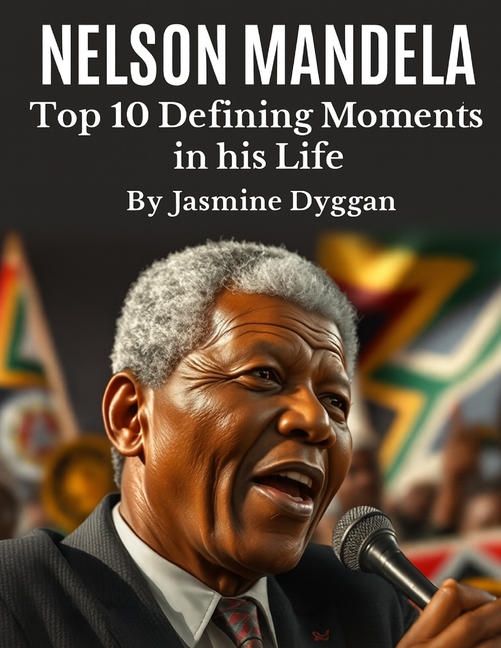Description
Nelson Mandela's name evokes strength, perseverance, and the unbreakable human spirit. Born in the rural village of Mvezo in 1918, he rose to become a global icon of justice and reconciliation. This book explores ten defining moments that shaped his extraordinary journey from a young law student to South Africa's first Black president and one of the most admired figures of the twentieth century.
Mandela's story is one of transformation, marked by critical turning points. His decision to join the African National Congress (ANC) in 1944 signalled the beginning of a lifetime commitment to challenging the racial oppression of apartheid. He quickly rose through the ranks, co-founding the ANC Youth League and advocating for direct action and mass mobilisation.
The Defiance Campaign of 1952 marked his emergence as a national leader. As volunteer-in-chief, Mandela travelled the country inspiring acts of nonviolent resistance. This campaign introduced him to the power of organised civil disobedience and earned him widespread recognition as a disciplined and courageous leader.
In the Treason Trial of 1956 to 1961, Mandela and over a hundred other activists were charged with attempting to overthrow the state. The trial, though gruelling, became a platform to challenge the legitimacy of apartheid in the eyes of the world. Ultimately acquitted, Mandela emerged more resolved than ever to fight for a democratic South Africa.
After the Sharpeville Massacre in 1960 and the banning of the ANC, Mandela co-founded Umkhonto we Sizwe, the armed wing of the ANC, in 1961. This marked a significant shift in his philosophy. No longer convinced that peaceful protest alone could achieve freedom, he led acts of sabotage designed to avoid loss of life but send a clear message to the regime.
In 1964, Mandela was sentenced to life imprisonment during the Rivonia Trial. His four-hour speech from the dock, known as the "I Am Prepared to Die" speech, became a rallying cry for justice. He articulated the vision of a non-racial South Africa and declared that it was a cause for which he was willing to sacrifice his life.
Mandela spent 27 years in prison, 18 of them on Robben Island under harsh conditions. Despite the physical and emotional toll, he maintained his dignity and moral leadership, becoming a global symbol of resistance. His calm strength inspired fellow inmates and activists across the world.
Transferred to Pollsmoor and later Victor Verster Prison, Mandela began secret negotiations with the apartheid government. These quiet, careful conversations helped chart a path away from civil war and towards peaceful transition. Even in confinement, he shaped the future of South Africa with patience and foresight.
His release on February 11, 1990, was a moment of global celebration. Holding his head high, Mandela walked free into a new era. He immediately resumed leadership of the ANC, urging continued struggle without vengeance. His first public speech reinforced his vision of a non-racial democracy and called for peace and perseverance.
Between 1990 and 1993, Mandela led delicate negotiations with then-president F. W. de Klerk to dismantle apartheid. These talks were fraught with tension, but Mandela's moral authority and strategic thinking helped keep the country on the path to democracy. The two were jointly awarded the Nobel Peace Prize in recognition of their efforts.
In 1994, South Africa held its first democratic elections. Mandela was elected president, not just as a political figure, but as a moral leader. His presidency was marked by an effort to unify the country. The establishment of the Truth and Reconciliation Commission, led by Archbishop Desmond Tutu, allowed the nation to confront its past without falling into cycles of retribution.
Product Details
- Jun 26, 2025 Pub Date:
- 9798289791603 ISBN-10:
- 9798289791603 ISBN-13:
- English Language




